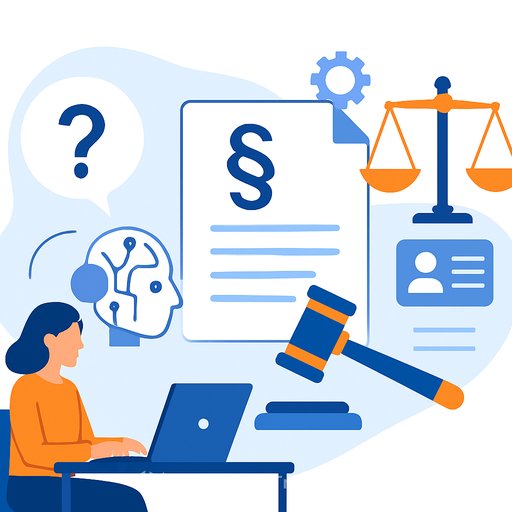Law Council urges AI guidance and tighter case management in Federal Court practice note for self-represented litigants
The Law Council of Australia has called for the Federal Court's proposed practice note for litigants in person (LIPs) to include explicit rules on using artificial intelligence, along with clearer case management and accessibility measures.
The goal: help self-represented parties participate effectively while protecting the integrity of the court's processes.
Why this matters
More people are appearing without lawyers due to cost pressures, eligibility limits, difficulty with legal procedures, or changes in representation. That trend strains court resources and can put unrepresented parties at risk of serious missteps.
A well-constructed practice note can set expectations, reduce confusion, and shorten timelines-benefits for litigants, the court, and opposing parties.
AI-specific guidance the Council wants
The Council recommends clear verification and disclosure requirements when LIPs use AI tools for drafting or research. The guidance should:
- Explain the limits of AI-generated content and the risk of false or fabricated material.
- Warn that misleading the court-whether intentional or careless-can have serious consequences.
- Set expectations on how AI assistance should be identified and verified before filing.
For context on existing practice notes, see the Federal Court of Australia practice notes. Background on the Council's policy work is available via the Law Council of Australia.
Encouraging legal advice and support
The Council backs language that actively steers LIPs to get legal help before engaging in proceedings, with clear, visible signposting to low-cost or free services. It also suggests plain warnings about the risks of going it alone.
- List affordable legal assistance and duty lawyer options.
- Spell out the risks of proceeding without representation.
- Highlight potential for contempt findings and adverse costs orders.
The note should also direct LIPs to interpreters, mental health services, and other non-legal supports, developed with input from relevant stakeholders.
Conduct and responsibilities
The Council proposes straightforward communication protocols and expectations for LIP conduct, including that litigants:
- State an arguable legal basis for claims or defenses.
- Follow court orders and directions.
- Avoid abusive, obstructive, or repetitive filings.
Case management: clarity up front
- Use a structured front-end case management process to promote early resolution.
- Differentiate procedural hearings from substantive hearings.
- Provide simple examples of common filing errors.
- Explain the difference between service and filing.
- Help litigants understand what amounts to legal error.
Accessibility and plain language
- Outline the natural progression of a case in simple terms.
- Use plain, non-technical language throughout.
- Offer visuals-flowcharts, short videos, checklists.
- Provide translations, given the volume of migration and administrative matters.
What legal and court-facing managers can do now
- Define an AI-use policy for court documents: disclosure, verification steps, and record-keeping.
- Add AI fact-check protocols (citations, case validation, transcript checks) to filing workflows.
- Build a quick-reference guide for staff engaging with LIPs: conduct expectations, referral pathways, and common pitfalls.
- Create plain-language templates and explainer sheets for procedural steps and hearing types.
- Prepare for front-loaded case management: early issue definition, document standardization, and realistic timelines.
- Maintain a current list of legal assistance, interpreter services, and mental health supports for referrals.
- Run short training on spotting AI hallucinations and documenting verification steps. If your team needs a fast primer, browse practical AI courses.
Bottom line: clear rules on AI, early and structured case management, and accessible guidance can reduce friction for everyone involved-and help the Court keep matters fair, simple, and efficient.
Your membership also unlocks:









